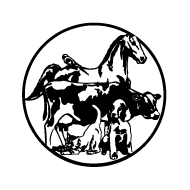Feeding Your Bird
One of the great myths about owning birds is that all they need to eat is seed. This is no more true of birds than it is about us. Parrots and finches were living in Australia for thousands of years before the first crop of grain was ever planted. Their digestive system and metabolism has not evolved to live on seed, and subsequently avian vets see malnutrition as the number one disease problem in pet birds today. So what do we feed our birds?
Seed
Seed can make up to about 50% of a bird's daily diet. However, fattening seeds, such as sunflower and safflower, should be kept to a minimum. One healthy way to feed your bird is to let it have seed only while you're having breakfast and tea. The rest of the day, it has salad.
Greens
There is no truth to the story that greens (especially lettuce) are bad for birds. If your bird is not used to eating greens, it will initially have a bit of diarrhoea. This quickly pass though, as its digestive system adapts to a healthier diet.
Dark green leafy vegetables are preferred to light green vegetables (lettuce and celery). This includes broccoli, silver beet (spinach), and cabbage. Milk thistle and dandelion out of the garden are also firm favourites.
Yellow vegetables such as sweet potato, pumpkin, carrot and sweet corn are highly recommended. Beans and peas of all sorts are valuable sources of protein for your bird.
Greens should make up about 30% of your bird's daily diet.
Fruit
Whether to feed your bird fruit will depend on where it originates from. Parrots from South America, Africa, Asia, and the rainforests of Australia relish fruit. Birds that come from central Australia do not really need any fruit.
You can feed nearly any fruit, but the ones most commonly fed include apple, stone fruit and melons. If you do give fruit, allow only small amounts e.g. 1/4 apple per bird daily.
Supplements
Birds that have been on poor diets or under stress (e.g. breeding, moulting) will benefit from some extra vitamins and minerals such as Soluvet and Tracemin. Calcium will be required (e.g. cuttlefish), but some birds, especially cockatoos, need calcium in their water (Calcivet).
Treats from the table, such as small pieces of meat or even chop bones are fine in moderation. Never feed your bird avocado.
Lorikeets
As nectar and pollen eaters, lorikeets are not adapted to eating seed. Some of the larger lorikeets and lories will eat seed, but it is not recommended as a complete diet for them. Excellent wet and dry lorikeet mixes are now available, and take all the hard work out of feeding these beautiful birds. Fruit and greens should be provided as well.
Pelleted diets
There are some complete pelleted diets available now for feeding birds. These diets take the guess work out of preparing a balanced diet, and promote good health and vibrant colours. Some people complain these diets are boring, but they are no more plain than the terrible seed diets that many feed. Once again greens and perhaps fruit should be fed, but vitamin and mineral supplements are not needed. These diets are strongly recommended for pet birds.
- Last updated 16 November 2012
